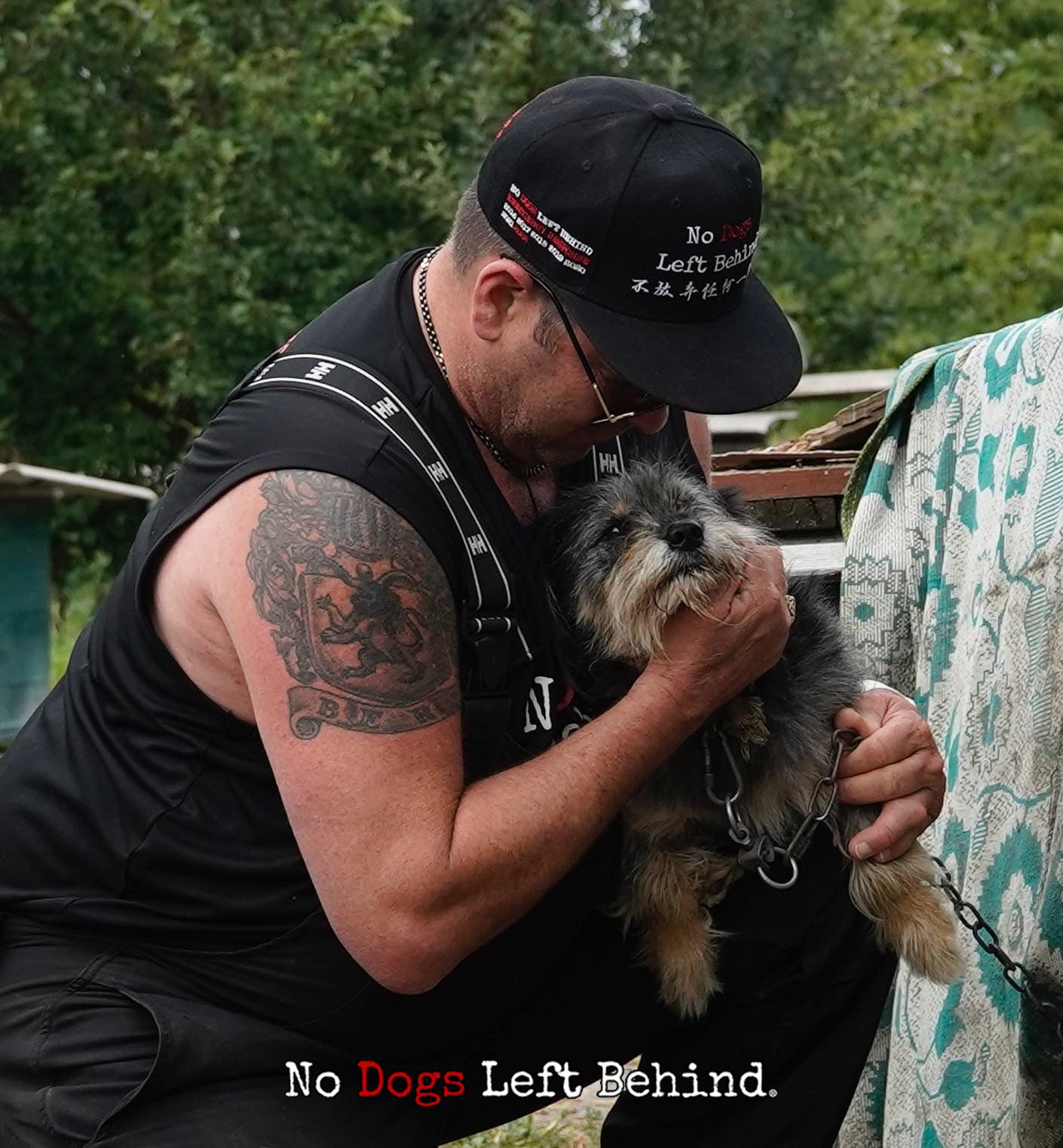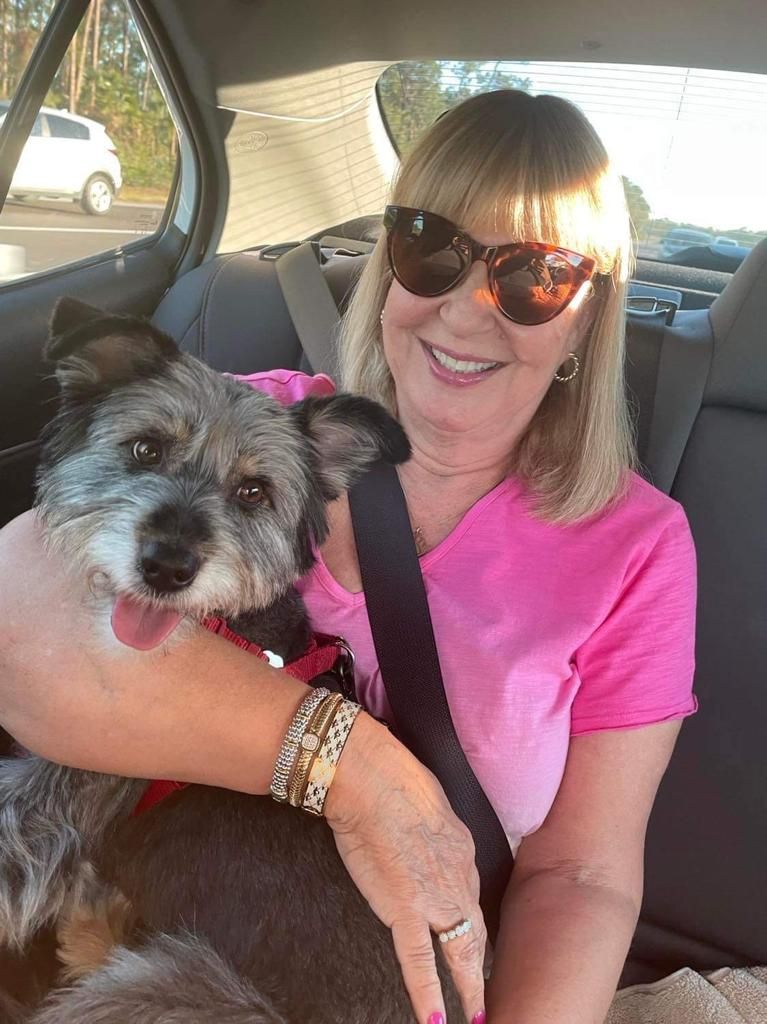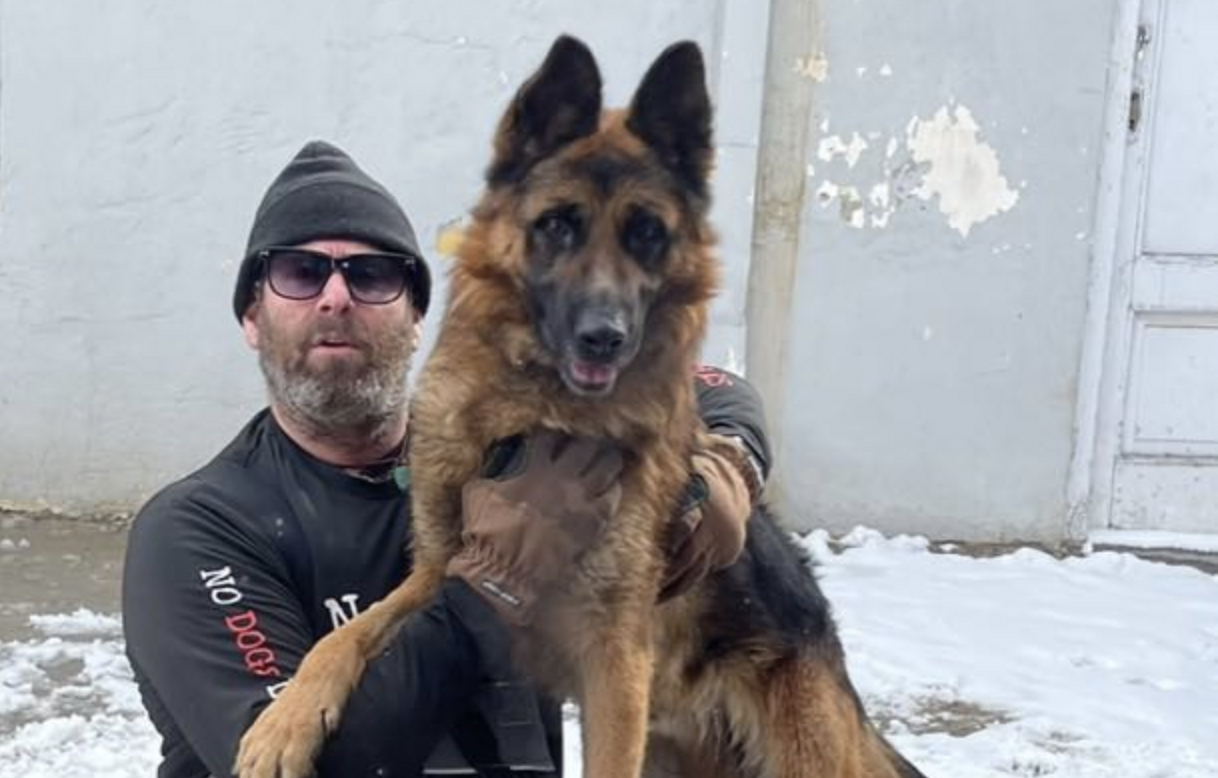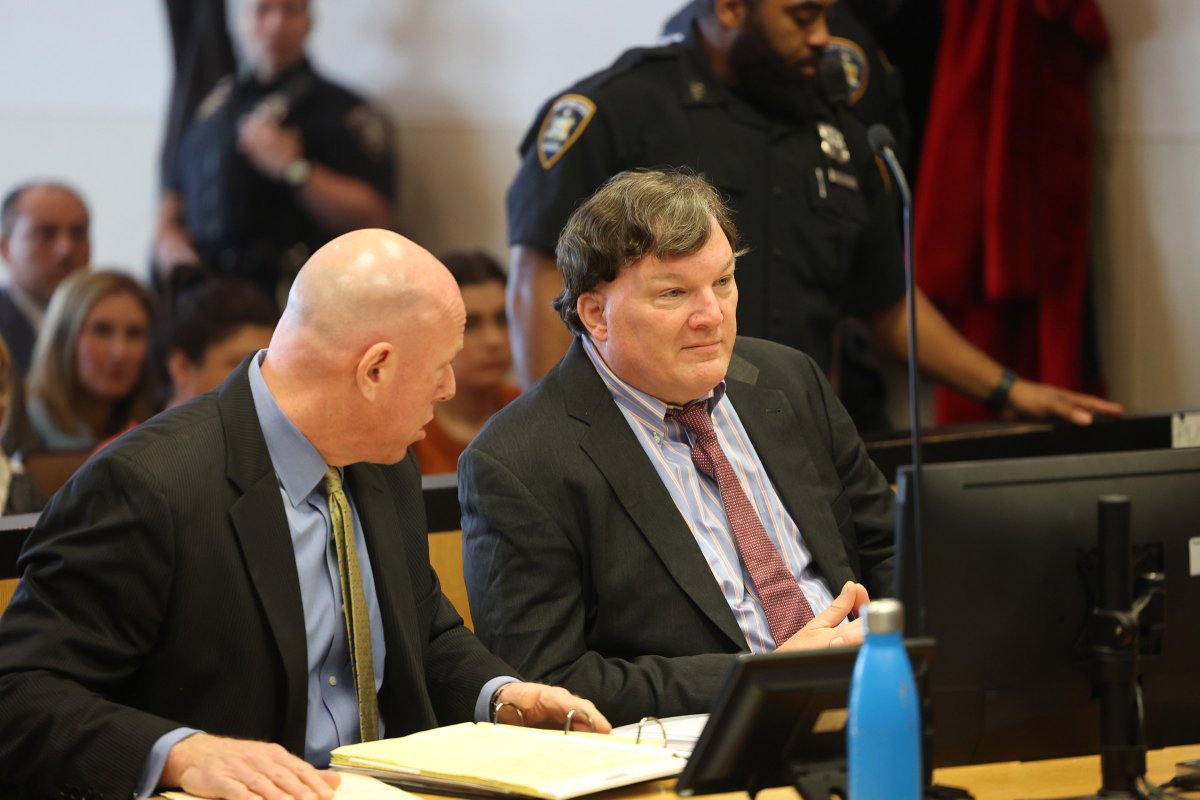Life in Wartime Ukraine with Jeff Beri and No Dogs Left Behind

Less than 24 hours after Ukrainian President Volodymyr Zelensky steps off a U.S. Air Force jet to deliver his historic address to Congress, another plane carrying another man on a mission from Ukraine touches down on American soil.
Like Zelensky, the man can’t fly directly out of Ukrainian airspace. The skies are too treacherous and most of the country’s airports have been reduced to rubble by Russian missiles. He makes his way by car from the battle-ravaged capital city of Kyiv to Budapest, Hungary. His journey continues onto Paris and then to JFK International Airport.
Jeff Beri, founder and principal of No Dogs Left Behind, an international nonprofit that fights for global animal welfare laws and provides emergency response on the front lines of some of the harshest regions of the world, lands in his hometown at 11 p.m. local time, two nights before Christmas Eve.
Beri, who grew up on the Upper East Side of Manhattan and Cedarhurst, Long Island, isn’t flying alone. He’s traveling with “Uki,” a gray and white terrier with attentive ears and one of those dog faces that’s as much human as it is canine.
Uki has been through hell. Before being rescued by local animal activists, he’d been chained to a fence in the Ukrainian city of Sumy for several days, helpless to do anything but cower as an intense firefight, including tanks and heavy artillery, raged around him.
Uki is doing much better now. After parting ways with Beri and spending the night at the airport for medical clearance, he’ll be on his way to his new home in Bonita Springs, Florida, his adoption already arranged through No Dogs Left Behind’s ever-expanding network.
When Beri walks off the plane at JFK, he’s hard to miss, even without Uki in tow. He’s a tall, formidable looking middle-aged dude with a propensity for hugging people he’s never met before. He’s sporting a black baseball hat, a black sweatshirt and black pants, all of which are festooned with the bright red and white No Dogs Left Behind logo.
“When I’m out there, I wear my colors,” he says.
Even after many hours of international travel, Beri is still juiced with leftover adrenaline from 10 days spent helping animals in and around the front lines of a war zone.

No Dogs Left Behind in Ukraine
Just a few days earlier, he was traveling through the port city of Kherson in a three-truck convoy with local volunteers to deliver massive sacks of dog and cat food to hard-hit towns in the region. His escorts included two “Angel Heart” soldiers — Ukrainian fighters who had defended Kyiv in the earliest stages of the invasion. The Angel Hearts’ sole mission on that day was to keep Beri alive.
For eight months, Kherson had been occupied by the Russian Army, and had only been recaptured by Ukrainian forces in mid-November. The city was just beginning to re-emerge, settling back into some of its pre-war rhythms. But it was devastated — and it was still a target.
“Out of nowhere, there was this boom. A missile landed 10 or 15 meters from us,” Beri recounts, getting more animated as his adrenaline kicks back into overdrive. “The front wheels of the truck came off the ground and the sulphur cloud spray from the blast shot through. Our driver turned the truck around and it was literally 100 miles an hour back in the other direction… that was way too close, man.”
Leaving JFK at a little past midnight, Beri is driving north on a rain-slicked section of the Van Wyck Expressway. The Van Wyck can be a tricky road in bad weather, but it’s definitely not in the same danger universe as a supply route in Kherson, Ukraine. He relaxes, shifts into manager mode and gets granular about his organization’s raison d’être.
Beri has now logged two trips to wartime Ukraine. His first trip, arranged with crucial political and logistical support from an anonymous patron he met at a summer fundraiser in Bridgehampton, was four months earlier, where he focused his efforts in the city of Hostomel, northwest of Kyiv.
“Rescuing and evacuating dogs like Uki — that’s sexy, that’s the money shot,” he explains. “Rescues are what bring in a lot of our funding. But they’re not the thing that Ukraine needs the most.”
Beri’s assessment of the situation on the ground in Hostomel led to a multi-pronged, pilot program. The first step involved securing access and lining up local security, transportation and animal volunteers. Logistics in place, Beri’s team began by supplying thousands of pounds of pet food across the region.
His team then implemented an ongoing system to spay or neuter stray dogs and cats as well as family pets. The animals were also vaccinated against rabies and other major diseases. Strays were fitted with ear tags, micro-chipped and logged in an international database to help measure the success of the program.

“I’m feeding them, I’m sterilizing them, I’m vaccinating them, I’m tracking them,” Beri explains. “In four months, we’ve stabilized the stray population with 75 percent effectiveness in Hostumel. It’s monumental. The government is thrilled. The last thing they need is stray animals procreating out of control and hitting the street with infectious diseases.”
Building on his organization’s success in Hostumel, Beri is currently securing funding and support, and making plans to expand the program to other regions across Ukraine.
Formed as a non-profit in 2017, No Dogs Left Behind is funded solely by donations. In addition to its recent work in Ukraine, the organization lobbies for animal welfare laws in places like Afghanistan and China
“Right now, there are no animal welfare laws in China,” Beri laments ”But we’re gonna change that.”
Beri has also spent significant time on the ground in both countries, building local animal activist teams to protest against and combat the vicious dog-meat trade that’s still common in parts of Asia.
“I’ve had an AK-47 pointed at me in Afghanistan,” he says. “I’ve seen things in Ukraine that brought me to my knees — things that would bring any human being to their knees… but I’m not stopping.”
Learn more at nodogsleftbehind.com.



